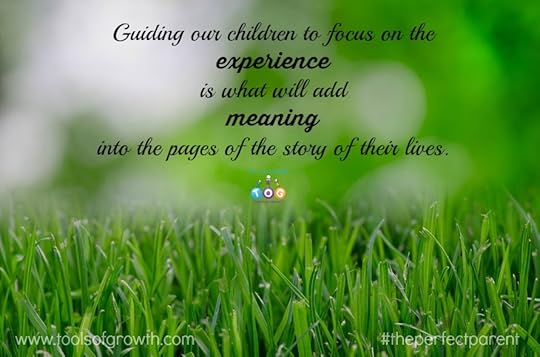Focus on the Experience, Not the Outcome
As adults, we are often so focused on the outcome of what we do that we tend to forget about the experience itself. Somehow, we are always looking for the payoff. For example: How much money are we going to make? Or will we win the prize?
Do we serve our children well when we do this? How about teaching them to experience the experience instead of focusing on the outcome? Would that not add more meaning to their lives? Here are some steps that you can take.
Positive Experiences
We all love a positive outcome, and we celebrate that as a society. If you work hard at something, you will be successful, right? We tell our kids that if they study hard and do all their homework, they will get a good grade. We push them to run faster and play harder so that they’ll hit a home run or score a touchdown.
When our kids experience a win, we are quick to show our excitement and hop onto social media to let everyone know. But the real prize lies elsewhere. We need to teach our kids that the experience of getting there is just as worthy as the trophy. In order to help them do this, ask your child these questions:
How did winning make you feel?
Were the steps you took easy or hard?
Did you have fun doing it?
What did you learn from this?
Negative Experiences
What happens when the outcome doesn’t match the goal? We should always start by validating their emotions with a tool from my book, The ‘Perfect’ Parent called Dealing with the Feeling—spot it, say it, okay it, and then ask these questions:
How does not winning make you feel?
Do you think you tried your best?
Did you have fun playing?
What did you learn from this?
Feeling angry or sad is completely normal, and it’s okay to express those emotions in a safe way. Saying things like, “Snap out of it,” or “Toughen up,” is condescending and discounts your kids’ feelings. Let your child take a break and just sit with the feeling for a while. In Jill Bolte Taylor’s book, A Brain Scientist’s Personal Journey, she explains:
Once triggered, the chemical released by my brain surges through my body and I have a physiological experience. Within 90 seconds from the initial trigger, the chemical component of my anger has completely dissipated from my blood and my automatic response is over. If, however, I remain angry after those 90 seconds have passed, then it is because I have chosen to let that circuit continue to run.
When we allow our children to work through their own emotions, they will learn how to self-manage those negative feelings. Let them experience the experience.
Neutral Experiences
How many times have your kids not really cared what the outcome of a game was? Perhaps they were bored or the activity wasn’t exciting enough for them. There’s nothing wrong in having neutral experiences. We are so over-stimulated and over-scheduled these days that we don’t allow our children enough time to just be. But something wonderful comes from being in a state of boredom. In fact, it’s necessary for all of us to take a No-Thing break every day.
We may be afraid to feel nothing, but nothingness is where our greatest creativity comes from. It’s where we get new ideas and learn about ourselves on a deeper level. If your children are complaining that they have nothing to do or are “bored,” let them work through that experience as well.
The ocean of life is navigated through the waves of experiences—positive, negative, and neutral. Riding these waves is the life lesson. Experiencing the experiences is what makes our life robust and gratifying. As John Keats said, “Nothing ever becomes real until it is experienced.” Guiding our children to focus on the experience is what will put meaning into the pages of the story of their lives.
The post Focus on the Experience, Not the Outcome appeared first on Tools of Growth.







